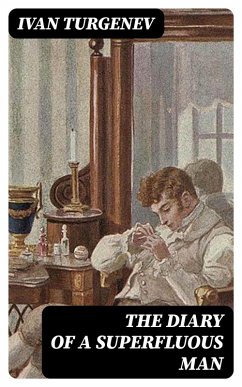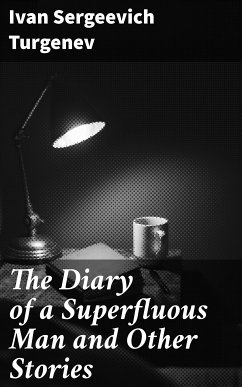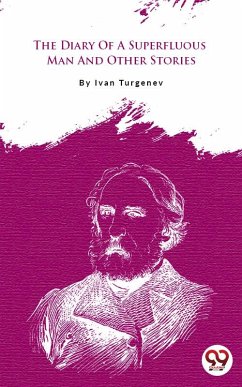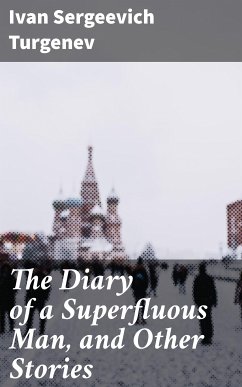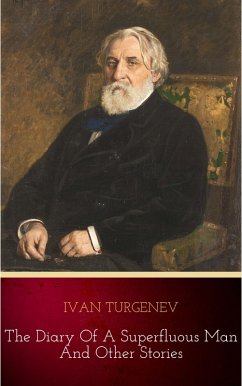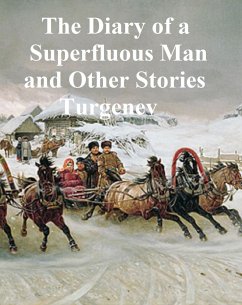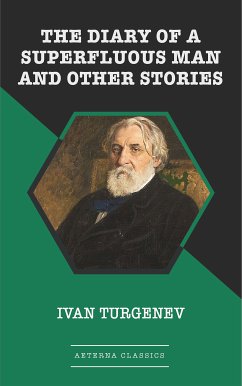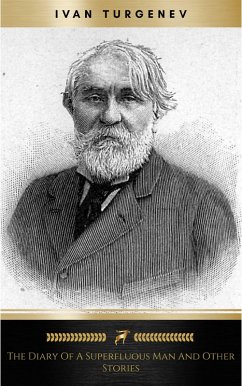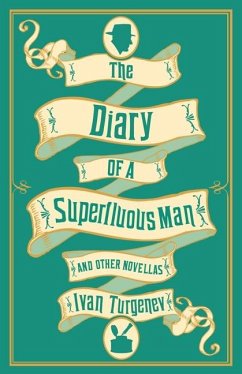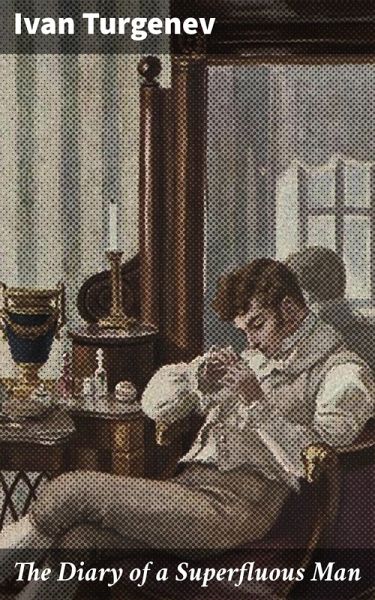
The Diary of a Superfluous Man (eBook, ePUB)
Enriched edition. An Introspective Journey into Existential Crisis and Social Critique
Kommentar: Davenport, Helena / Redaktion: Good Press / Übersetzer: Garnett, Constance

PAYBACK Punkte
0 °P sammeln!
In "The Diary of a Superfluous Man," Ivan Turgenev explores the life of a disaffected young aristocrat whose introspective musings reveal the existential malaise of the Russian gentry in the 19th century. Turgenev employs a first-person narrative that is both poignant and reflective, providing readers with a raw glimpse into the protagonist's inner turmoil and societal dislocation. The work is steeped in the literary context of Realism, where characters grapple with their identity and purpose amidst a rapidly changing social landscape, making it a profound commentary on the contradictions of R...
In "The Diary of a Superfluous Man," Ivan Turgenev explores the life of a disaffected young aristocrat whose introspective musings reveal the existential malaise of the Russian gentry in the 19th century. Turgenev employs a first-person narrative that is both poignant and reflective, providing readers with a raw glimpse into the protagonist's inner turmoil and societal dislocation. The work is steeped in the literary context of Realism, where characters grapple with their identity and purpose amidst a rapidly changing social landscape, making it a profound commentary on the contradictions of Russian aristocracy during this turbulent era. Ivan Turgenev, a central figure in Russian literature, was profoundly influenced by his own aristocratic background and disillusionment with serfdom, which informs his delineation of a 'Äúsuperfluous man'Äù'-a character archetype representing the ennui of the educated class. His experiences in Western Europe and exposure to various social ideologies also contributed to his critical perspective on Russian society, culminating in this rich and nuanced exploration of an individual's struggle within the societal fabric. Recommended for readers seeking a deep and introspective portrayal of disillusionment, "The Diary of a Superfluous Man" offers timeless insights into the complexities of human emotion and social existence. Turgenev's masterful prose invites contemplation on one's own place within a shifting world, making this work an essential read for both literary enthusiasts and anyone grappling with feelings of aimlessness. In this enriched edition, we have carefully created added value for your reading experience: - A succinct Introduction situates the work's timeless appeal and themes. - The Synopsis outlines the central plot, highlighting key developments without spoiling critical twists. - A detailed Historical Context immerses you in the era's events and influences that shaped the writing. - An Author Biography reveals milestones in the author's life, illuminating the personal insights behind the text. - A thorough Analysis dissects symbols, motifs, and character arcs to unearth underlying meanings. - Reflection questions prompt you to engage personally with the work's messages, connecting them to modern life. - Hand-picked Memorable Quotes shine a spotlight on moments of literary brilliance. - Interactive footnotes clarify unusual references, historical allusions, and archaic phrases for an effortless, more informed read.
Dieser Download kann aus rechtlichen Gründen nur mit Rechnungsadresse in A, B, BG, CY, CZ, D, DK, EW, FIN, F, GR, H, IRL, I, LT, L, LR, M, NL, PL, P, R, S, SLO, SK ausgeliefert werden.




